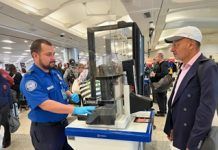New research has revealed that nearly eight in 10 providers of frontline healthcare services within the UK have experienced at least one data breach since 2021. The Technology Lifeline: Charting Digital Progress in Healthcare research from SOTI highlights the worrying state of affairs for patient data security. With 79% of UK healthcare providers reporting at least one data breach, the research also found a 22% year-on-year increase for UK healthcare IT workers reporting a data breach. A 14% rise in accidental data leaks originating from employees was also noted.
These findings indicate that little is being done to address the issue of data security.
According to a third of IT professionals in the industry, they spend too much time fixing issues with legacy IT systems, identifying them as a likely data security vulnerability.
Stefan Spendrup, VP of sales, Northern and Western Europe at SOTI, said: “In the healthcare industry, data security is far more than protocol – it is fundamental to patient trust and system integrity.
“Our research last year found that 88% of IT healthcare professionals in the UK had concerns around patient information being compromised but our new findings suggest that little progress has been made in addressing this.”
The report – which asked the opinion of 1,450 healthcare IT professionals across the US, Canada, Mexico, UK, Germany, France, Sweden, Netherlands and Australia – identified that the growing scale and diversification of device implementation was contributing to the data security challenge.
Nearly half (44%) of respondents reported an increase in the mix of devices used in their organisation in the past year – including mobile devices, tablets, rugged devices and printers. Additionally, 33% reported an increase in the use of personal devices to access company systems and networks.
Failure to directly manage or monitor these devices can pose a significant risk. It’s vital that device malfunctions or compatibility issues are addressed, otherwise critical healthcare processes can be undermined, that will impact on the job.
Spendrup noted: “Device management is becoming more and more complex. It requires urgent attention and adequate investment in resources to mitigate potential vulnerabilities and protect sensitive healthcare data.
“A reliable and efficient device management solution can deliver enhanced visibility, oversee devices used to offer patient care and significantly bolster device security, including the ability to remotely manage and shut down any devices or IoT endpoints during a security breach.” The solution to addressing the issues facing IT professionals in the sector was overwhelmingly named as new technology.
Nearly all (95%) of IT professionals said that new technologies – such as artificial intelligence (AI) and virtual reality (VR) was a priority to improve organisational efficiency and productivity.








